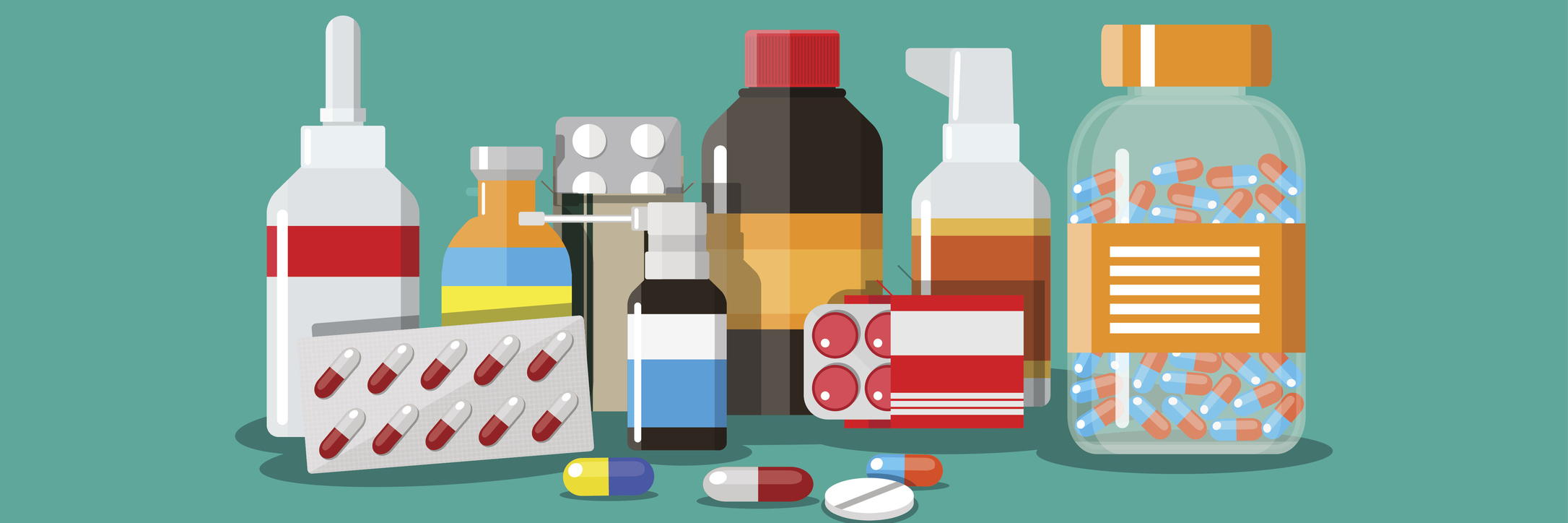The Misconceptions About Taking Medication for Chronic Illnesses That Fuel 'Pill Shaming'
The judgment of when we need pills in today’s society is, from my experience, distorted.
Let’s start with the common misjudgment of people who take opiates for chronic pain. They are often assumed to be “addicts” simply because this type of drug can be addictive for some, not all. I was once taking oral morphine on prescription during a physical health relapse. I don’t think I’m overanalyzing the situation when I recall the way I was given the prescriptions in a rather insensitive way compared to my other medications. Maybe a 21-year-old taking morphine is so uncommon that people, including pharmacists, are instantly suspicious of your intentions with it?
Besides opiates, it seems to be the common misconception that taking drugs for long-standing illness (to function to the best of your ability) makes you weak. That, or now that you’re functioning well, people think the next step is to lower your dosage of the drugs that are helping you. I believe this is due to scare-mongering news articles depicting the potential “dangerous” side effects of these tablets, but not the improvements they can make to somebody’s quality of life. It seems to be the same situation for drugs used for both physical and mental health conditions. There’s a lot of ignorance in society (and online) insinuating that somebody’s lifestyle is the only thing preventing them from leading a mentally stable or pain-free life. Yes, factors such as diet, exercise and social interaction can help a lot of different people in many different ways. Alas, they will not “cure” me or many others of very real underlying health conditions. It is often medication that actually makes things such as exercise and social interaction more possible.
I’ve personally found a trend in certain people’s reactions when it comes to me taking medication. When my symptoms become unbearable to function with, people seem keen for this to be “sorted out” in any way possible, including medication. They are not keen, however, for me to stay on the medication long-term, even if it is keeping my symptoms at bay/bearable. I’m often asked whether the doctors are going to reduce my medication, to which the doctors say no because of the improvement in my symptoms.
So, why did taking medication even come to be a bad thing in today’s society?
– As I mentioned previously, there are several scaremongering articles in newspapers, websites, etc. that contribute to society’s view on depending on medication, generating unnecessary fear across all age ranges. What people maybe don’t take into account is that articles are supposed to be thought-provoking and controversial to grab the reader’s attention, especially tabloid newspapers.
– Lists of potential side effects can scare people into thinking that medication does more harm than good, when the reality is that a lot of these side effects are rare, and everybody responds differently to different medications.
– Most people who don’t have long-standing mental or physical illness are most likely used to taking medication very occasionally and only for a short amount of time. As a result of this, they may not understand why some people need them long-term. This may be why some people see relying on medication as “weak” because they have never had to do so themselves.
– This leads to the next point, which is that when people see us doing better, they may not realize why we still take them. It’s easy to them to forget just how challenging life would be without the medication. For those of us who have struggled or endured an injured quality of life with mental or physical health, it is almost impossible to forget the contrast.
– The word “pharmaceutical” is often associated with money and business. I believe it is integral to remember that pharmaceutical companies simply manufacture the medication for profit. It was scientists who originally developed these drugs. Their best interests were advances in science, healthcare and the well-being of people, not profit!
Why is pill shaming harmful?
Pill shaming is harmful to patients because there is already enough stigma surrounding physical and mental illness. Trying to dissuade somebody from taking medication that helps them can be harmful because it can induce feelings of shame and/or guilt. Opiates are becoming increasingly difficult for patients with chronic pain to access because of society’s stance that it’s an “addict’s drug.”
If you know anyone who takes medication for any reason, please take into consideration the points discussed in this article.
If you are somebody who takes medication, I hope this helped you to understand that you should never feel guilty, ashamed or weak for doing so.
This blog was originally published on Louise Francesca Blogs.
Thinkstock photo by Abscent84

